Tools Required
| • | J 5590 Pinion Bearing Race Installer - Rear |
| • | J 34794 Bearing Installer |
| • | J 8092 Driver Handle |
| • | J 8614-01 Flange and Pulley Holding Tool |
| • | J 23771 Axle Shaft Seal Installer |
| • | J 29609 Rear Pinion Bearing Cup Installer |
| • | J 33782 Pinion Oil Seal Installer |
| • | J 7817 Bearing Installer |
- Install the outer pinion bearing cup using the J 7817 (1).
- Install the inner pinion bearing cup using the J 29609 (1) and the J 8092 (2).
- Determine the selective shim thickness for the pinion. Refer to Pinion Depth Adjustment .
- Install the selective shim between the inner pinion bearing and the shoulder on the gear.
- Install the inner pinion bearing using the J 5590 .
- Install a new collapsible spacer.
- Lubricate the pinion bearings with axle lubricant. Use the proper fluid. Refer to Fluid and Lubricant Recommendations in Maintenance and Lubrication.
- Install the pinion into the axle housing.
- Install the outer pinion bearing onto the pinion.
- Install the new pinion oil seal using the J 33782 .
- Apply sealant, GM P/N 12346004, (Canadian P/N 12346004) or equivalent, to the splines of the pinion flange/yoke.
- Install the pinion flange/yoke.
- Seat the pinion flange/yoke onto the pinion shaft by tapping it with a soft-faced hammer until a few pinion shaft threads show through the flange/yoke.
- Install the washer and a new pinion nut.
- Install the J 8614-01 onto the pinion flange/yoke as shown.
- Tighten the pinion nut while holding the J 8614-01 .
- Measure the rotating torque of the pinion. Compare this measurement with the rotating torque recorded during removal.
- Once the specified torque is obtained, rotate the pinion several times to ensure the bearings have seated. Recheck the rotating torque and adjust if necessary.
- Lubricate the differential side bearings with axle lubricant. Use the proper fluid. Refer to Fluid and Lubricant Recommendations in Maintenance and Lubrication.
- Place the differential case, with the bearing cups installed, into the axle housing.
- Install the bearing caps and the bolts.
- Adjust the differential side bearing preload. Refer to Differential Carrier Bearing Preload Adjustment .
- Measure the rotating torque of the pinion and the ring gear. Compare this measurement with the rotating torque recorded during removal.
- If the rotating torque of the pinion and the ring gear is not within specifications, adjust the differential side bearing preload or the pinion bearing preload as necessary.
- Once the specified torque is obtained, rotate the pinion several times to ensure the bearings have seated. Recheck the rotating torque and adjust if necessary.
- Adjust the backlash. Refer to Backlash Adjustment .
- Perform a gear tooth contact pattern check. Refer to Gear Tooth Contact Pattern Inspection .
- Tighten the bearing cap bolts
- Install the axle shaft bearing using the J 34794 (1) and the J 8092 (2).
- Drive the axle shaft bearing into the axle housing until the tool bottoms against the tube.
- Install the axle shaft seal using the J 23771 .
- Drive the tool into the bore until the axle shaft seal bottoms flush with the tube.
- Install the axle shaft (1) into the housing (5).
- Slide the axle shaft (1) into place allowing the splines to engage the differential side gear.
- On axles without a locking differential, place the lock (4) on the button end of the axle shaft (1).
- On axles with a locking differential, keep the pinion shaft partially withdrawn.
- On axles with a locking differential, place the lock (1) on the axle shaft (3) so that the ends are flush with the thrust block (2).
- Pull the shaft flange outward in order to seat the lock in the differential gear.
- Align the hole in the pinion shaft with the bolt hole in the differential case.
- Install the new pinion shaft locking bolt.
- Install the rear axle housing cover (2) and a new gasket.
- Install the rear axle housing cover bolts (1).
- Fill the axle using the proper fluid. Refer to Approximate Fluid Capacities and Fluid and Lubricant Recommendations in Maintenance and Lubrication.
- Install the fill plug.
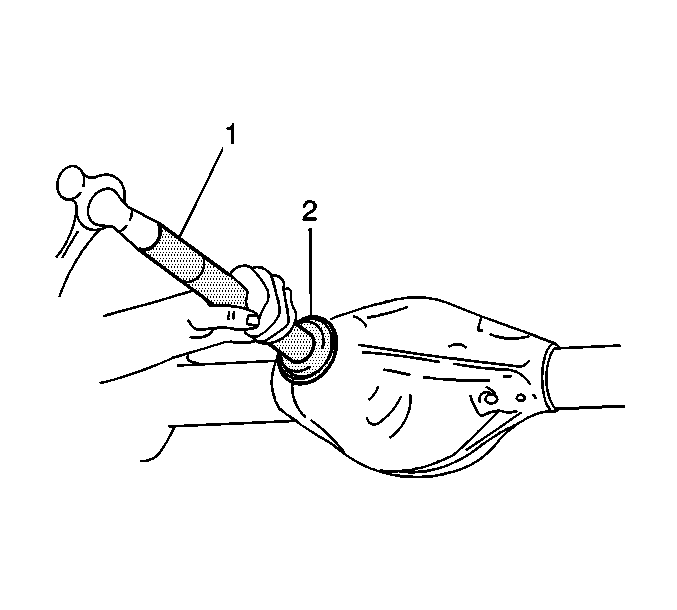
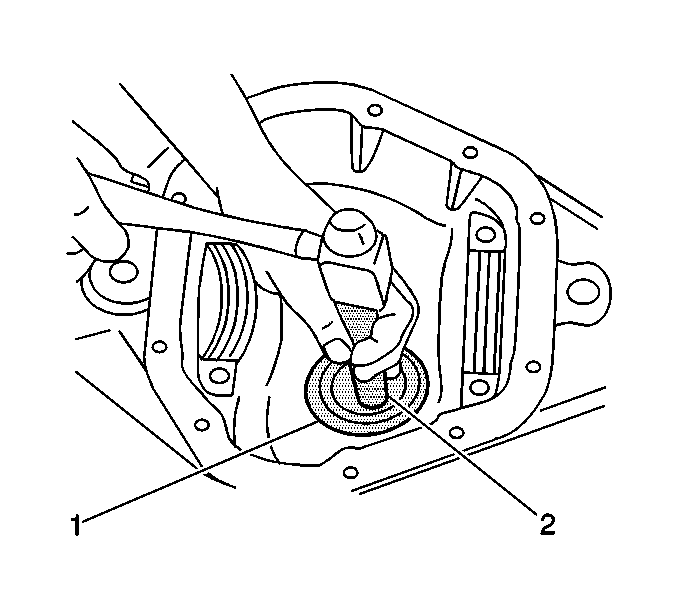
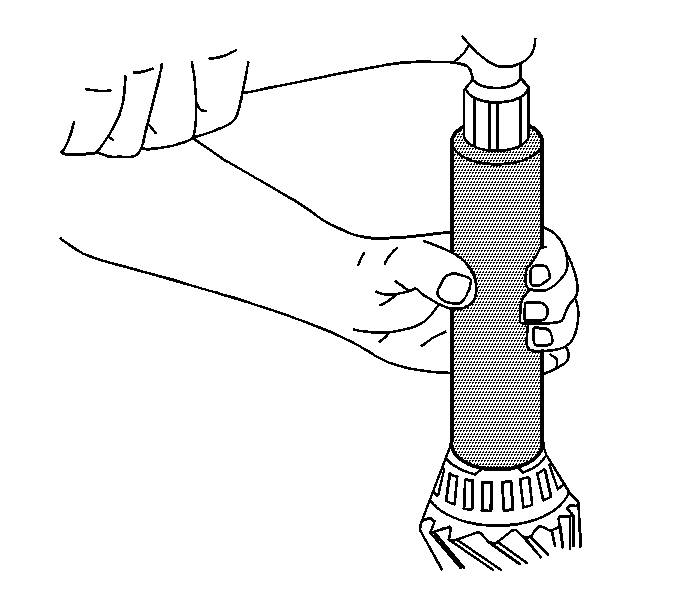
Press the bearing on until the cone seats on the pinion shim.
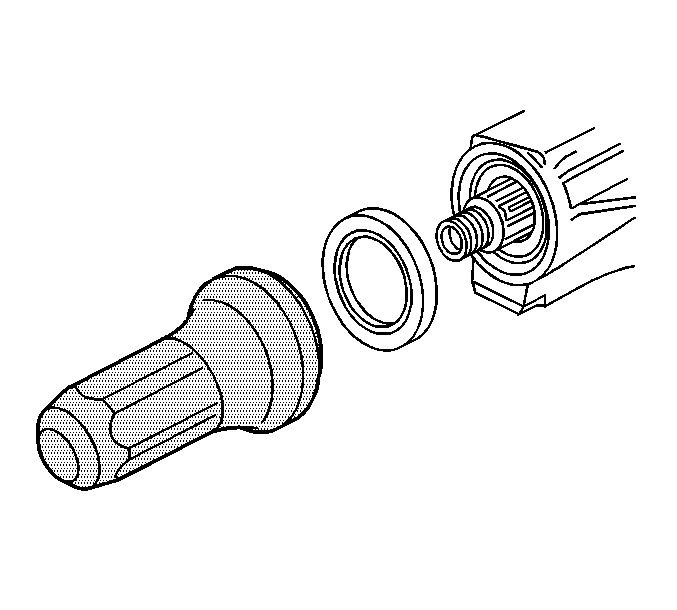
Important: Install the pinion gear flange/yoke to the pinion gear shaft in the same position as marked during removal in order to maintain correct driveline balance.
Align the marks make during removal.
Notice: Do not hammer the pinion flange/yoke onto the pinion shaft. Pinion components may be damaged if the pinion flange/yoke is hammered onto the pinion shaft.
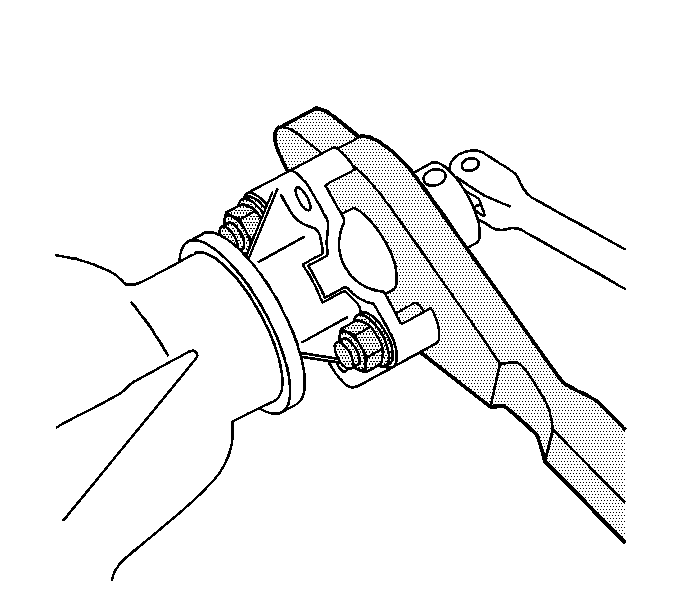
Notice: Use the correct fastener in the correct location. Replacement fasteners must be the correct part number for that application. Fasteners requiring replacement or fasteners requiring the use of thread locking compound or sealant are identified in the service procedure. Do not use paints, lubricants, or corrosion inhibitors on fasteners or fastener joint surfaces unless specified. These coatings affect fastener torque and joint clamping force and may damage the fastener. Use the correct tightening sequence and specifications when installing fasteners in order to avoid damage to parts and systems.
Important: If the rotating torque is exceeded, the pinion will have to be removed and a new collapsible spacer installed.
Tighten
Tighten the nut until the pinion end play is just taken up. Rotate the pinion while tightening the nut to seat the bearings.
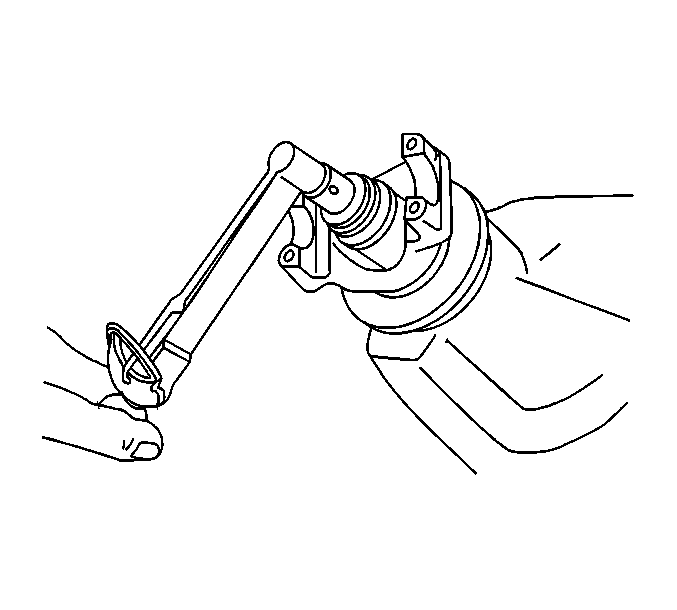
Tighten
Tighten the nut in small increments, as needed, until the rotating torque is 1.1-2.8 N·m (10-25 lb in) (used bearings) or 1.7-3.4 N·m (15-30 lb in) (new bearings).
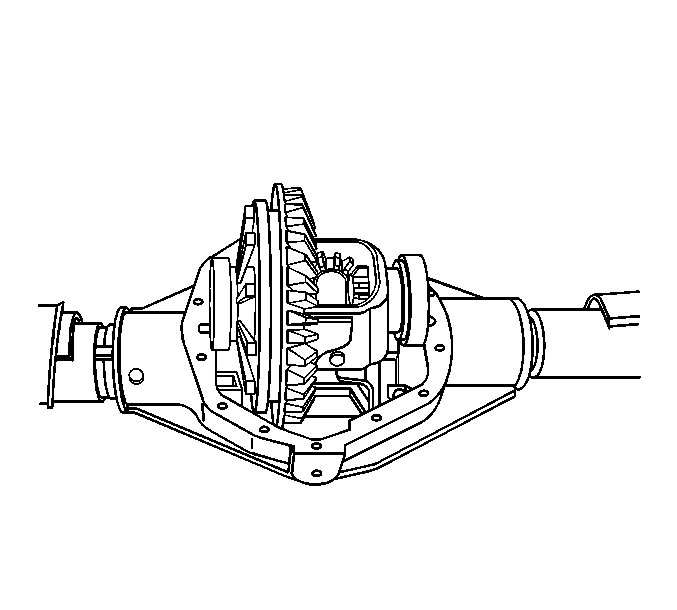
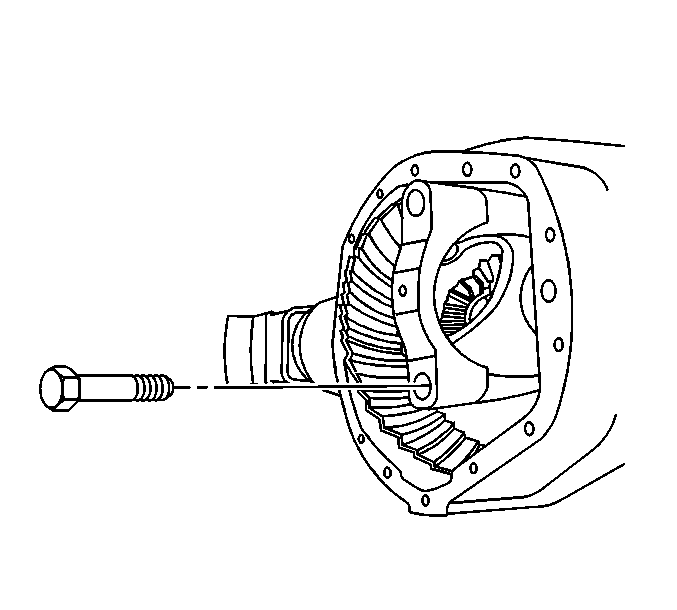
Do not torque the bearing cap bolts at this time.

Specification
The rotating torque of the pinion and the ring gear should be 2.8-5.6 N·m (25-50 lb in) (used bearings) or 3.9-6.2 N·m (30-55 lb in) (new bearings).
Tighten
Tighten the bearing cap bolts to 75 N·m (55 lb ft).
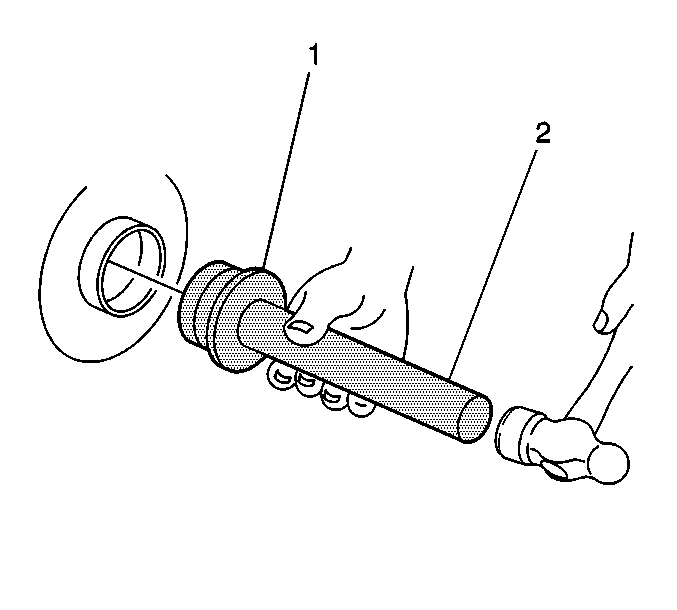
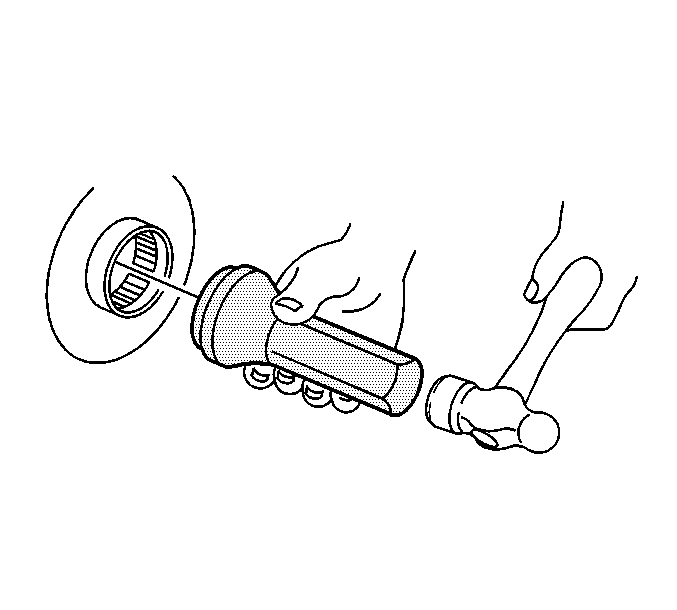
Important: Carefully insert the axle shaft in order to not damage the seal.
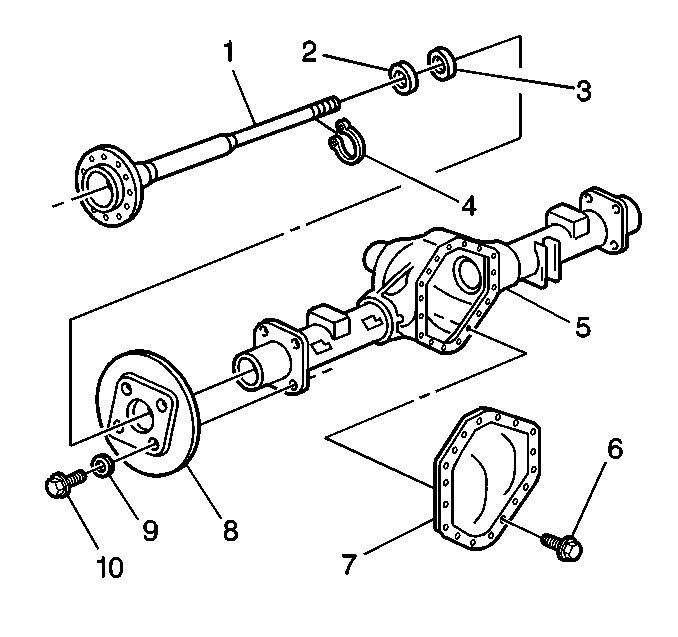
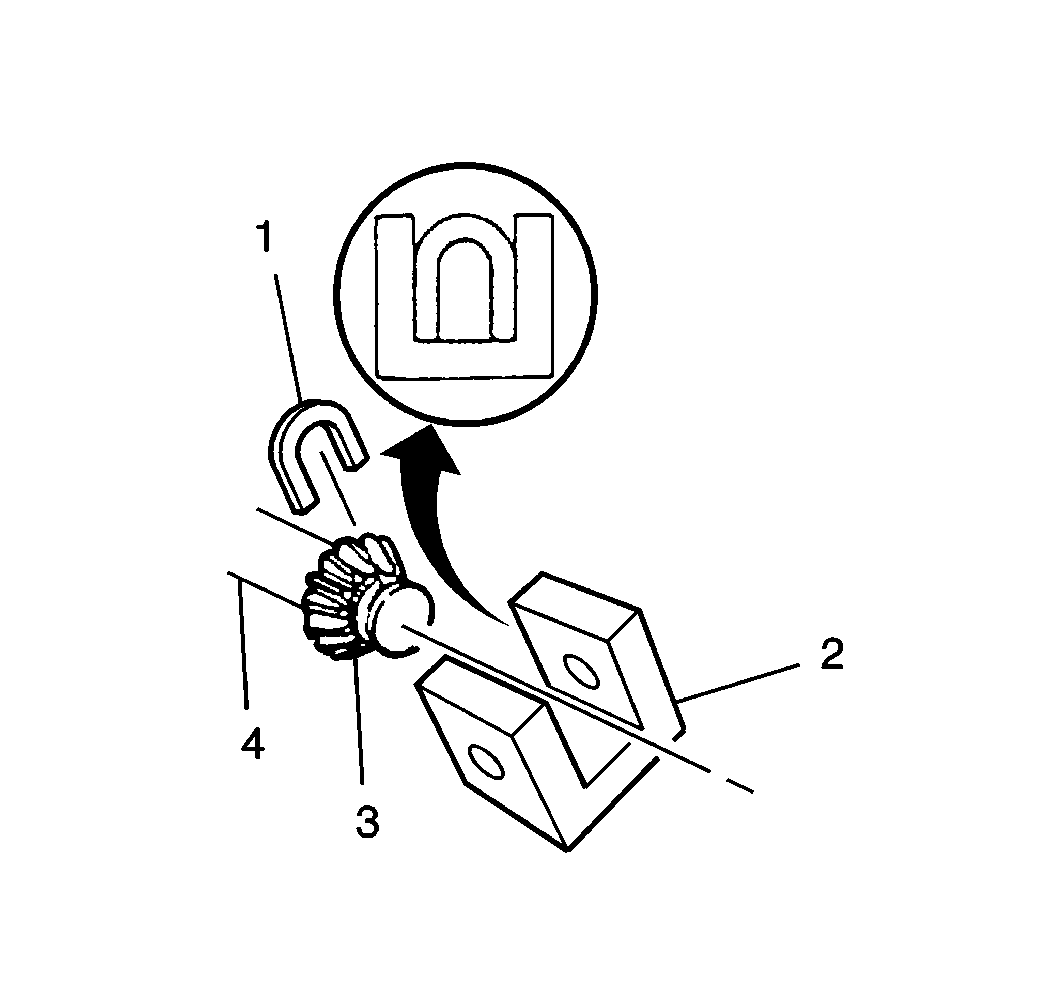
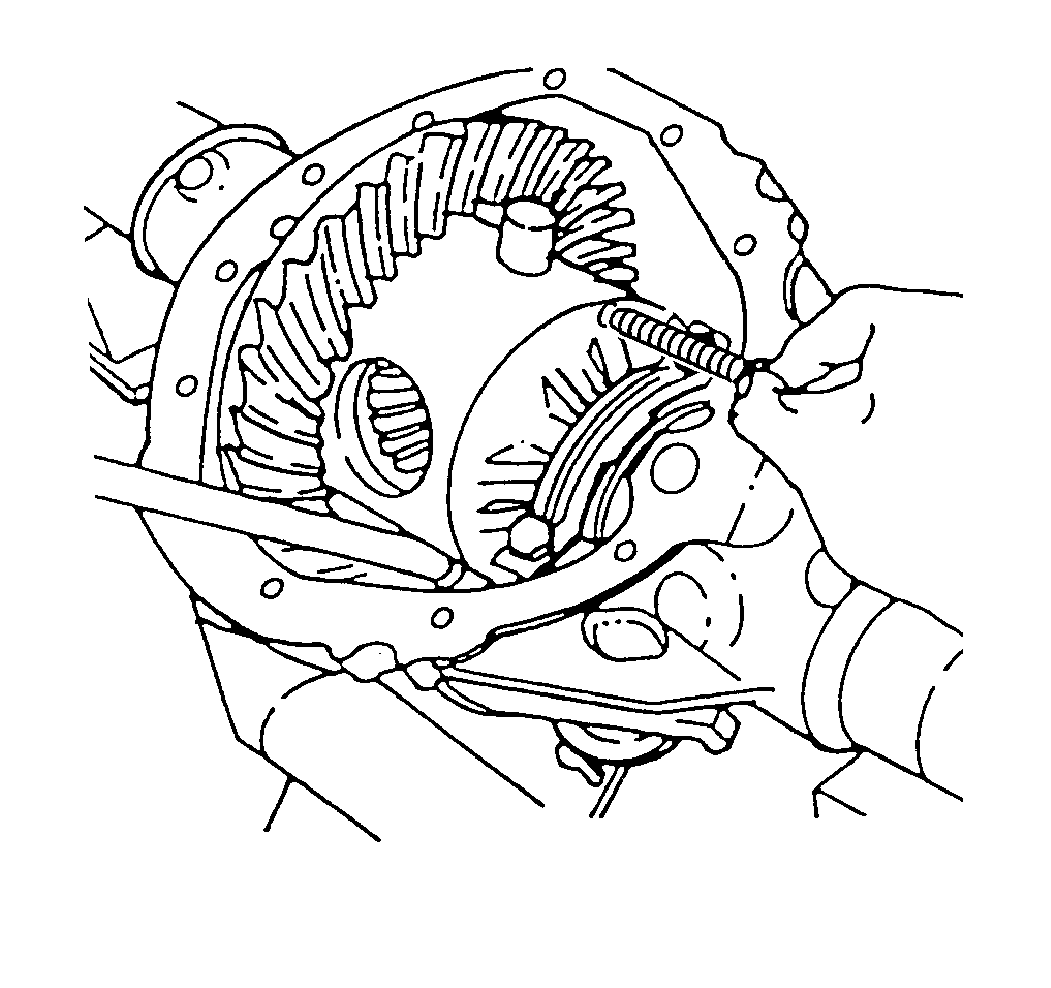
Tighten
Tighten the pinion shaft locking bolt to 25 N·m (19 lb ft).
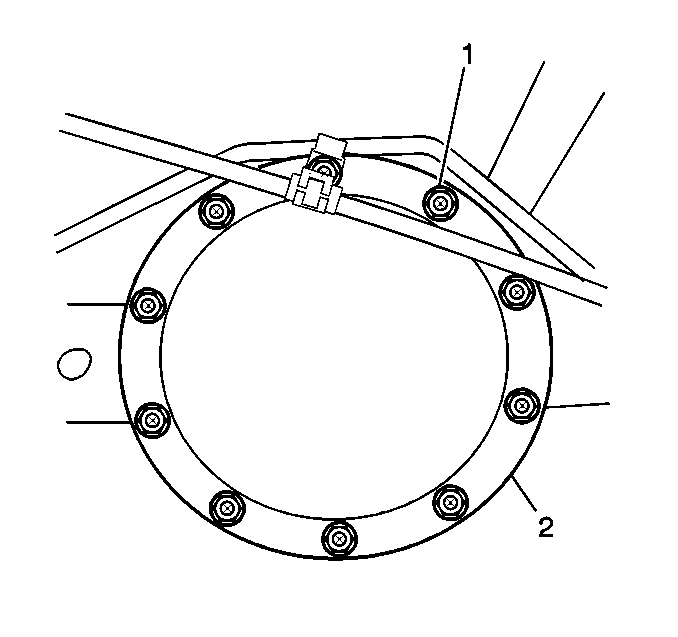
Tighten
Tighten the rear housing cover bolts in a crosswise pattern to 30 N·m (22 lb ft).
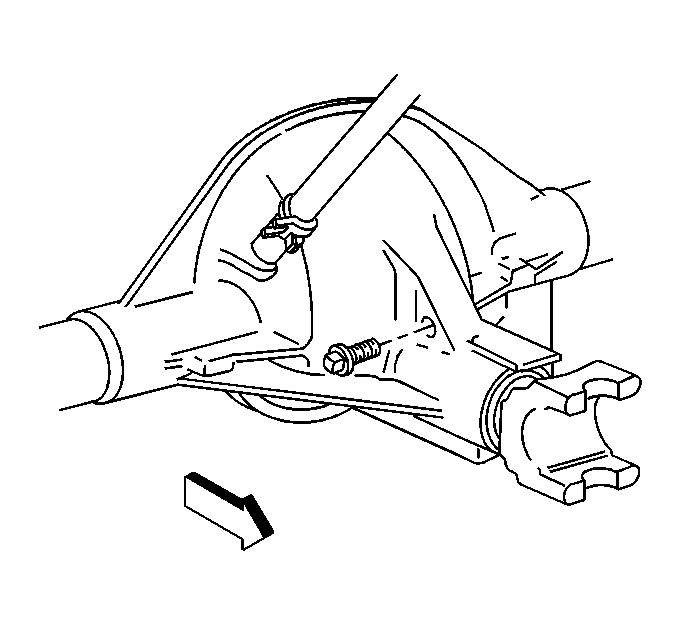
Tighten
Tighten the fill plug to 33 N·m (24 lb ft).
